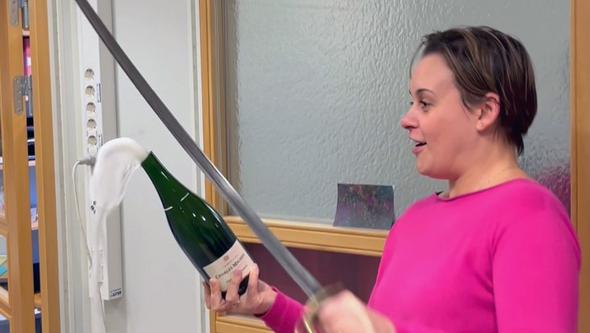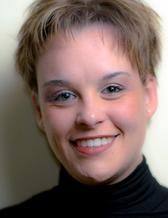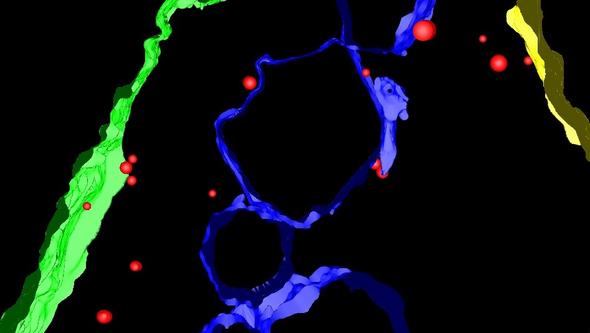- Home
- News and events
- Find news
- Shocked, happy and a bit scared after landing 6 million grant
Shocked, happy and a bit scared after landing 6 million grant
She has invented and developed a way to isolate exosomes from tumor tissue. Rossella Crescitelli has been awarded SEK 6 million from the Swedish Research Council to continue her research on the role of these messenger-carrying nanoparticles in the growth and spread of cancer.
Her name appeared among 38 others from the University of Gothenburg on the Swedish Research Council’s list of researchers who receive grants in medicine and health.
On Rossella Crescitelli’s line was written “Starting grant” and SEK 6,000,000.
“I couldn’t believe it. But after receiving so many congratulations from people around me, I have now finally realized how big this opportunity is. I have to confess that the first reaction was of shock, with a great deal of happiness but I was also a little scared,” says Rossella Crescitelli.

Sabered a champagne bottle
Rosella Crescitelli, 38, is from Italy, came to the University of Gothenburg in 2012 and did her postdoc here in 2014–2019. She is a full-time researcher in the area of surgery at the Institute of Clinical Sciences.
Rossella celebrated the occasion by sabering a champagne bottle, causing the bottleneck to fly off and the bubbly to foam over.
“When I got the news, I was on the phone with my boss professor Roger Olofsson Bagge talking about an experiment that was not going so well. When I told him that I got this starting grant, he immediately hung up and ran to the lab, where I was, bringing champagne and the saber to open the bottle,” says Rossella.
Changed mindset
“The happiness was, for sure, due to the fact that the Swedish Research Council expert panel believed both in my scientific background, but also that they considered my project idea to be of high importance with the potential to make a difference in the medical field. At the same time, I was a bit scared.”
So, what caused the fear?
“Until two-three years ago, I was not seeing myself applying for a starting grant aiming to become an independent scientist. Back then, my idea was to continue with what I love with my work, being in the lab doing experiments. But in the last few years something has changed in my mind.”

Here at the University of Gothenburg I can grow as a researcher and aim for something even bigger
What led to this shift in your mindset?
“I have been given more responsibilities in the lab. This has built my confidence and a feeling that here at Gothenburg University I can grow as a researcher and aim for something even bigger. Now I have received enough funding to also hire for example a post-doc that will be involved in the project. This will force me to take a few more steps in managing not just myself, but a small lab where also other people will be dependent on me,” Rossella says and continues:
“This makes me a bit nervous, but I have very good friends, colleagues, and mentors that I am sure will help me along the way. I feel safe in my current environment, working in Professor Roger Olofsson Bagge’s lab at Sahlgrenska Center for Cancer Research and the Wallenberg Center for Molecular and Translational Medicine. Exciting times are ahead. I feel so lucky that I now have the chance to actually create novel research based on techniques that I have developed myself, and to try my own ideas.”
Studying the tumor microenvironment
What is the goal of the project for which you are now receiving a four-year starting grant?
“To study the role of extracellular vesicles, also called exosomes, in cancer development. Exosomes are nanoparticles that are released by all types of cells and act as a communication system between them. It is known that cancer cells release exosomes that contribute to the metastatic spreading of tumors, but the details are largely unknown.”
What are your plans now, and what clinical benefits do you anticipate?
“My focus is to investigate the effect of exosomes released by cancer cells on the surrounding cells, the tumor microenvironment, and I will try to shed light on the mechanisms involved in cancer growth and progression. This has potential to aid in future development of both diagnostics and therapies for various types of cancer.”

A method she is unique in
How do you examine particles that are about 5,000 times smaller than a millimeter?
“One way is to isolate exosomes directly from tumor tissue. This has not been possible until recently when I invented and developed a new method to isolate these particles from tumor tissue. In this project, I will apply my method to surgically removed metastases from melanoma patients,” Rossella Crescitelli says and adds:
“I am also developing a method where we can culture thin slices of both cancer and healthy tissue, and study what effect exosomes from different cancer cells have on these tissues using sophisticated genetic analysis as well as high-resolution microscopy.”
In addition to the support from colleagues and mentors you’ve mentioned, what is it that allows you to succeed?
“The strength of this project is the possibility for me to continue within the same translational research network, with access to clinical samples from the hospital where I more or less daily receive tissue and blood samples. I will then process and isolate exosomes from the tissues, where the entire process requires two working days. Like I have done most of my research career so far, I will dedicate a large part of my time to laboratory work. I can’t wait to get started.”
Text: Jakob Lundberg